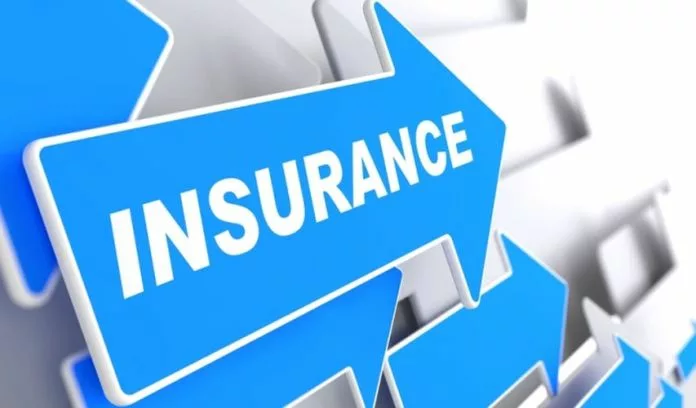Choosing the right insurance policy can be a daunting task, especially in a continent like Africa, where insurance penetration is still relatively low and the market is often complex and fragmented. With a wide range of insurance products available, from life and health insurance to auto and property insurance, understanding how to make the best choice for your needs is crucial.
Whether you’re a young professional, a small business owner, a family provider, or an investor, selecting the right policy will help safeguard your financial future. However, choosing the right insurance requires careful consideration of your unique circumstances, as well as understanding the local market dynamics.
In this expert guide, we break down the key factors you need to consider when choosing the right insurance policy in Africa, along with tips to make the process easier and more informed.
1. Understand Your Insurance Needs
Before you start shopping for insurance, it’s essential to assess your needs. Ask yourself what you are trying to protect and how much coverage you need. Your insurance needs will vary depending on your personal or business situation.
a) Personal Insurance
- Life Insurance: If you are the primary breadwinner in your family, life insurance provides financial protection for your dependents in case of your death. If you have children, a spouse, or elderly parents depending on you, life insurance is an important consideration.
- Health Insurance: With the rising cost of healthcare across Africa, health insurance is increasingly essential. Consider what level of medical care you need, whether you need private or public health services, and whether you want coverage for major illnesses, hospital stays, or outpatient care.
- Homeowners Insurance: If you own property, protecting it against risks like fire, theft, and natural disasters is vital. Home insurance will also typically cover your personal belongings inside the house.
- Motor Insurance: If you own a vehicle, you need motor insurance to protect yourself against accidents, theft, and third-party liabilities.
b) Business Insurance
- Commercial Property Insurance: If you own or operate a business, protecting your business premises, equipment, inventory, and other assets from risks like fire, theft, or damage is crucial.
- Liability Insurance: If your business interacts with customers, clients, or the public, liability insurance protects against claims of injury, damage, or negligence.
- Employee Benefits Insurance: Offering health insurance or other benefits to employees can improve retention and attract talent. Business owners may also consider worker’s compensation insurance to cover employees injured on the job.
2. Assess the Insurance Market and Providers
The insurance landscape in Africa is diverse, with both international and local insurers operating across the continent. It’s essential to evaluate the reputation and financial stability of the insurance company you are considering. Here are some steps to take:
a) Check the Insurer’s Reputation
- Customer Reviews and Ratings: Look for customer feedback online, especially from people in similar circumstances to you. Insurance providers with good reputations are likely to provide better service and be more reliable when it comes to claim settlements.
- Regulatory Compliance: Ensure the insurer is licensed and regulated by the relevant authority in your country. In Africa, this is typically the National Insurance Commission (NAICOM) or an equivalent body in your country.
- Claims History: Research the insurer’s history of claims settlement. A reputable company should have a strong track record of paying claims promptly and fairly.
b) Financial Strength and Solvency
Insurance companies must maintain a strong financial position to meet their obligations when claims arise. Companies that are financially solvent and well-capitalized are more likely to honor claims without delay. Check if the insurance provider is listed with an established ratings agency that assesses financial stability.
c) Product Offering and Specialization
Consider whether the insurer offers a product that fits your needs. Some insurers specialize in certain types of insurance, such as health or motor insurance, while others offer a broader range of products. For instance, if you need microinsurance or mobile-based insurance, ensure that the insurer offers products that cater to these needs.
3. Understand the Policy Details
Before committing to any insurance policy, make sure you understand the details of the coverage. Read through the policy document thoroughly, paying attention to the following key components:
a) Coverage and Exclusions
- What’s Covered: Understand the risks that are covered by the policy, including the amount of coverage provided. Does the policy cover the full value of your property, vehicle, or medical expenses, or are there any limits?
- Exclusions: Every insurance policy has exclusions—risks that are not covered. Make sure you understand these exclusions and how they could impact your coverage in the event of a claim. For example, natural disasters may not be covered by basic property insurance, or pre-existing conditions may not be covered by health insurance.
b) Premiums and Deductibles
- Premiums: How much will you need to pay in premiums, and how often? Make sure you can afford the premiums on a regular basis. In some cases, it may be beneficial to choose a policy with lower premiums but higher deductibles if you are looking for more affordable options.
- Deductibles: A deductible is the amount you need to pay out of pocket before the insurer pays the rest of your claim. Check how the deductible is structured and ensure that it aligns with your budget.
c) Claim Process
Understand the claims process for the policy. How easy is it to file a claim? What documents or steps are required, and how long does it typically take for claims to be processed and paid out? Look for policies with simple and transparent claims procedures.
4. Compare Multiple Insurance Policies
Insurance products are not one-size-fits-all. It’s essential to compare policies from multiple providers to ensure you are getting the best coverage at the best price. Consider using insurance comparison websites where available or speaking with an insurance broker who can help you evaluate options.
5. Cost vs. Value
While it’s tempting to go for the cheapest option, the cost of the insurance policy should be weighed against the value and coverage it provides. Cheap policies may leave you underinsured or with higher out-of-pocket expenses when a claim is filed. In contrast, more expensive policies may provide better coverage and offer additional benefits like roadside assistance, health checkups, or expanded coverage options.
Look for a policy that strikes the right balance between affordability and the protection you need. In some cases, it might make sense to pay a little extra for added security and peace of mind.
6. Digital Insurance and Accessibility
With technology revolutionizing the insurance landscape in Africa, many insurers now offer digital insurance products that are easily accessible through mobile apps or online platforms. Digital insurance offers benefits like:
- Convenience: Buy and manage your policy from the comfort of your home or office.
- Speed: Get quotes, buy coverage, and even file claims quickly through mobile platforms.
- Affordability: Digital insurance often comes with lower operating costs, which can translate into cheaper premiums.
Ensure that the insurer you choose offers a digital platform that makes it easy to access, update, and claim your insurance coverage.
7. Regulatory Considerations and Consumer Protection
Ensure the insurance company adheres to the regulations and consumer protection laws in your country. Consumer protection is important, particularly when it comes to the transparency of terms, the fairness of claims processes, and the overall treatment of policyholders. Regulatory bodies like NAICOM (National Insurance Commission) in Nigeria or other national bodies in Africa are tasked with overseeing the industry and ensuring that consumers are treated fairly.
8. Work With an Insurance Broker
If you find the process of selecting the right insurance policy overwhelming, consider working with a licensed insurance broker. Brokers can help you navigate the market, compare products, and select the policy that best meets your needs. They often have access to a range of insurers and products and can provide expert advice tailored to your unique situation.
Conclusion
Choosing the right insurance policy in Africa requires careful thought, research, and consideration of both your needs and the insurer’s offerings. By understanding your insurance requirements, evaluating insurance providers, reading policy documents thoroughly, and seeking professional advice when necessary, you can make an informed decision that provides the right balance of coverage and cost.
Insurance is an essential tool for protecting your financial future, whether it’s for personal coverage, business protection, or family security. With the right policy, you can safeguard your assets, manage risks, and ensure peace of mind in the face of life’s uncertainties.




